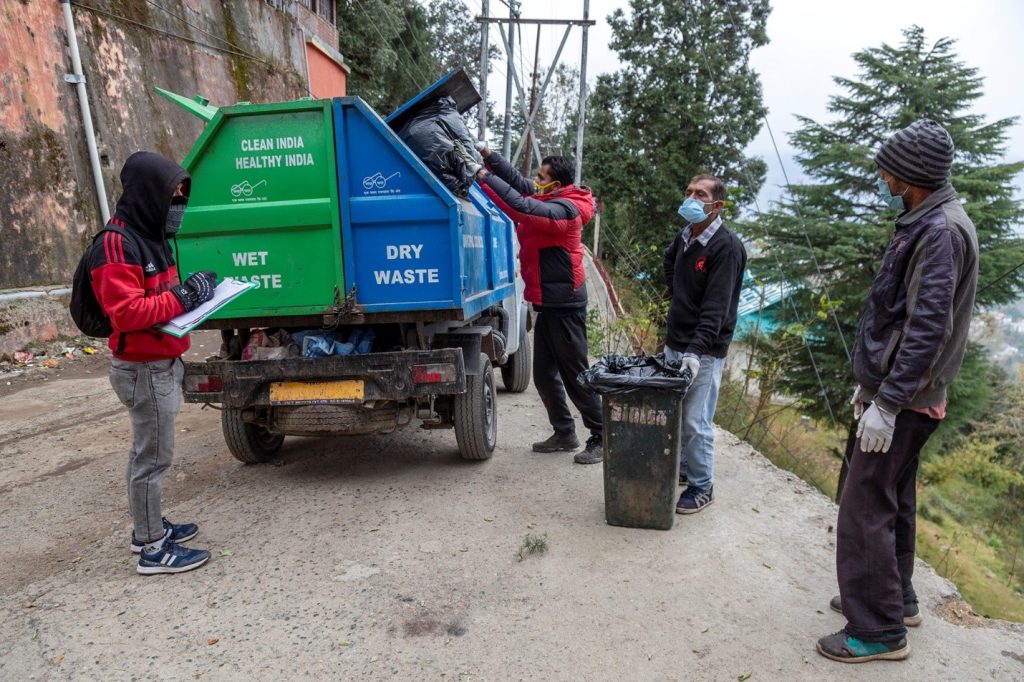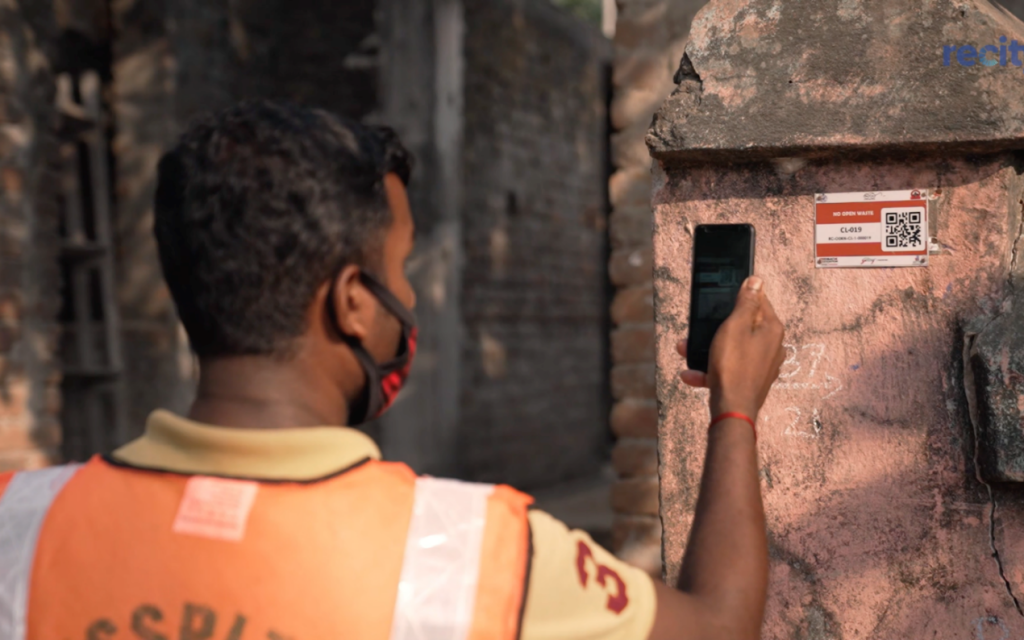The Problem Recity is Working to Solve
Recity works toward a circular economy of plastics. It enables this ecosystem with solutions that align with every stakeholder – including waste generators, brand owners (waste producers), waste workers, recyclers, and urban local bodies – to create a lasting impact in plastic waste management. The organization is providing innovative solutions to waste producers for traceable recycled packaging, efficient city waste management, and traceability of plastic waste throughout its life cycle.

Over a million waste workers are engaged in informal waste recycling all over India, and approximately 15 lakh (1.5 million) persons are engaged in the job of waste picking. India’s Informal waste workers generally lack benefits such as health insurance, minimum wage protections, and social security – resulting in a lack of dignity, recognition, and opportunity for upward socio-economic mobility.
Why We’re Excited About Recity’s Impact Potential
Recity is working towards systems-level impact, engaging stakeholders across the waste value chain in implementing digitally-enabled solutions that are inclusive and economically sustainable. Recity is focused on creating new revenue streams and livelihood opportunities for waste professionals by enabling circular cities, thus creating what it calls a “socially-restorative circular economy for waste management.” We’re excited about Recity’s potential to scale this impact for many reasons, including:
- Recity’s holistic approach: Recity’s on-the-ground implementation has enabled it to identify many of the sectoral barriers to achieving its vision of a “socially-restorative circular economy for waste management” – and thus its solution is designed to deliver value for all key stakeholders involved.

- Centering waste workers: Recity demonstrates a deep respect for, and deference to the experience of, the waste workers who are the first-mile stakeholders within this complex ecosystem. It has identified the challenges faced by the waste professionals across formal and informal supply chains and has integrated professionalization of the cadre as the organization’s core effort. Recity shared examples of how it has developed systems and processes to automate and capture the waste worker’s experience and, importantly, to use that data for making program tweaks and pivots to improve and accelerate impact.
- Scalable & adaptable model: Recity has refined an efficient and streamlined approach to entering new geographic regions. It has established a process to achieve local stakeholder buy-in, which also allows for sufficient flexibility to adapt the model to new regional contexts as it scales.
- Sustainability: Recity works with public, private, and nonprofit partners to execute its work, and leverages existing city resources instead of creating its own parallel systems. The solution, then, becomes institutionalized within the communities served – increasing the long-term sustainability of its impact.
The Plan to Achieve Impact at Scale
By 2025, Recity is working towards diverting 350,000 tons of plastic from landfills, professionalizing 25,000 waste workers, and creating 44 circular cities in India and globally. Recity will continue to expand nationally in India and cultivate new partnerships globally to 50+ cities to scale and deepen its impact for a more sustainable & equitable world. Recity would like to leverage the support of global corporations and funding organizations aiming to work towards creating environmental focus with social impact businesses to scale its growth.
